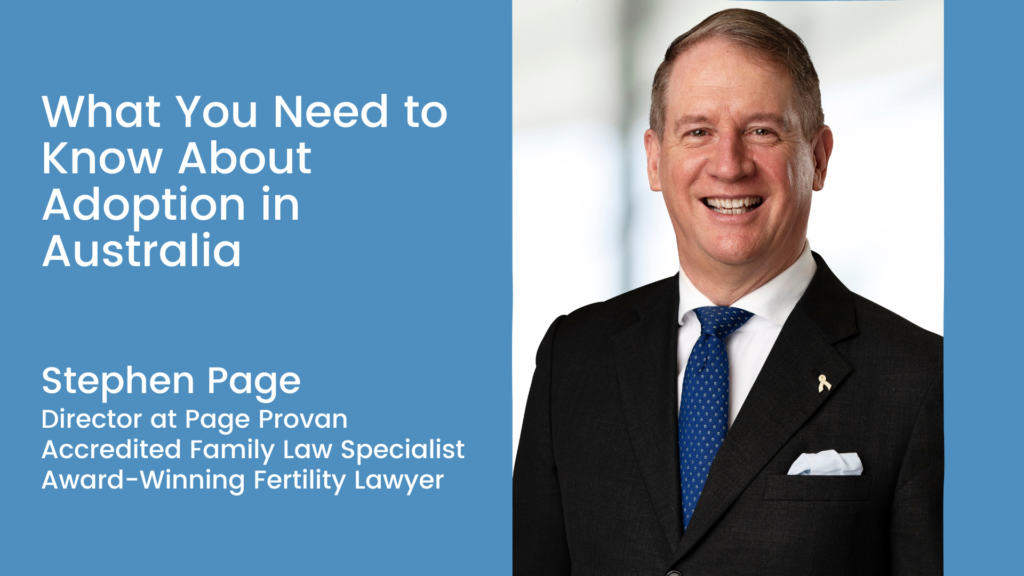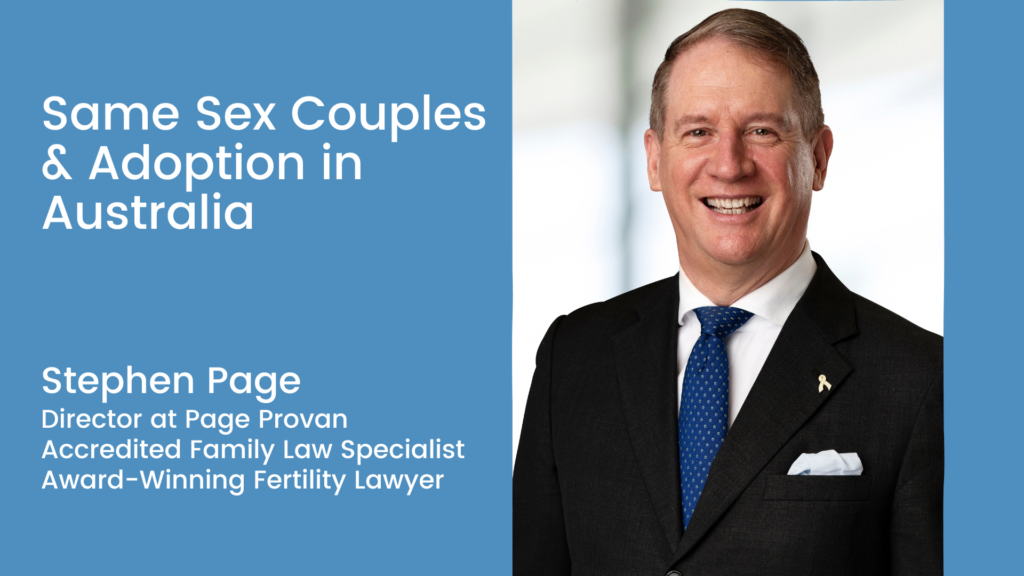Thursday, January 09, 2020
Queensland Judge – Man who supplies sperm to a single surrogate is not a parent
A Queensland judge has ruled that an intended parent who supplied his sperm to a single surrogate was not a parent at the time of the child’s birth under Queensland law – and that a Family Court decision that said otherwise was wrongly decided.
The Facts
In the case, known as RBK v MMJ [2019] a woman, MMJ offered to have a baby for the applicants, RBK and CZK. The child had been in the care of the applicants since birth. The biological mother was an egg donor. MMJ was the surrogate who gave birth to the child and was named as her parent on the child’s birth certificate. In the words of the court “RBK was a sperm donor and therefore in reality her biological parent”. The question for the court was whether at the time of birth RBK was a parent or not. The court noted that in a decision of Lamb v. Shaw [2018] in the Family Court, a man who had been in the position of RBK would be a parent, albeit one who had no rights or liabilities concerning the child. Justice Tree in Lamb v. Shaw had said that the provisions of the Status of Children Act 1978 (Qld), which contained parenting presumption contained:
“A recognition that, as an incontrovertible matter of fact, the genetic father is indeed the contributor of one half of the genetic material of the child, and hence as a matter of fact, his father. There is no reason why, absent statutory intervention, the common law would not recognise that fact that, as a matter of law, recognise that the father is one of the child’s parents.
Therefore in order for the genetic father to lose the status of parent, there would need to be clear statutory removal of that status or right, but in the absence of such statutory destruction or modification, it will remain…”
Judge Richards said that following the High Court decision in Masson v. Parsons (which when decided in 2019 said who was a parent under the Family Law Act) that:
“It follows from this that the interpretation of the Surrogacy Act by Tree J was unnecessary given that the Family Law Act provides a complete answer to the issue of who is a parent for the purposes of that jurisdiction.
Tree J’s interpretation of the Status of Children Act and the Surrogacy Act in my view cannot be correct if it means that a sperm donor who wishes to be an intended parent is instead a birth parent because of the different terms used in section 21 of the [Status of Children] Act. This is because of the reference to the man who produced the semen having no rights or liabilities in respect of a child to be born as a result of pregnancy is also used in section 19C(2) [of the Status of Children Act] in a situation where there has been an artificial insemination and the female bearing the child has a female de facto partner or a female registered partner.
If it is correct that a child who was born as a result of donor semen by a man intending to become the full-time parent of the child with his male partner becomes for the purposes of the Act a birth parent; then, on that basis, there will be different meanings assigned to the same phrase in ss19C and 21 of the Act. This is because of the interplay between those sections and sections 10A of the Births, Deaths and Marriages Registration Act which allows for only two people to be registered as parents on the birth certificate. In the case of s19C of the Act, that would be the mother of the child and her female partner.
The better view then is that it cannot be the semen donor in a case such as this is a birth parent within the meaning of the Surrogacy Act. The interpretation that fits both the Status of Children Act and the Births, Deaths and Marriages Registration Act is that a birth parent by definition is a person other than an intended parent. This means that once a person has entered into a surrogacy agreement as an intended parent they are excluded by the definition of s8(3) of the Surrogacy Act from being a birth parent. This does not take away from the fact that they are a biological parent but accords with the provision that they have no rights or liabilities as a result of the donation of the sperm.”
The case is consistent with a series of unreported decisions in the Childrens Court where their Honours have rejected the approach by Justice Tree. In one of those cases, my own matter, Judge Dearden accepted my submissions that a single surrogate was the only parent because the Queensland Parliament had intended from the very beginning that men who supplied sperm to women were not to be the parents and that this meaning accorded with amendments made to the Status of Children Act and the Births, Deaths and Marriages Registration Act by the Surrogacy Act in 2010.
Why does it matter?
A parentage order under the Surrogacy Act 2010 (Qld) can only be made to transfer parentage from the birth parents to the intended parents. The definition of birth parent under the Surrogacy Act specifically excludes an intended parent. Therefore, if Justice Tree’s interpretation of the Status of Children Act had been accepted by the Childrens Court, there could not be a transfer of parents to the intended parents, because one of those outside the definition of the Surrogacy Act was a birth parent. At worst, this might have meant that a Childrens Court judge refused to make a parentage order. At best, it would mean an adjournment while the intended parents ensured that the genetic father was removed from the birth certificate.
Due to the specific drafting issues in the Queensland Status of Children Act, this case is relevant only to surrogacy cases in Queensland and possibly the Northern Territory. The Northern Territory has the same phrase in its legislation – but currently parentage orders cannot be made in the Northern Territory as there are no surrogacy laws to affect the transfer of parentage.
I appeared for the applicants in RBK v MMJ, with much valued assistance from my associate Karen Gough.
Things to Read, Watch & Listen












